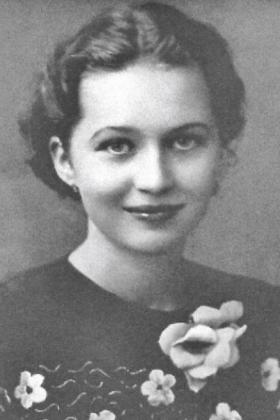Editor’s note: This is the second story in a series about a Canadian County family’s Czech heritage.
Canadian County residents Paul Francel and his wife, Lisa Gigstad Francel, some of their adult children and one of their grandchildren wore over-100-year-oldfamily Czech kroje (folk dance clothing) and danced during Yukon’s recent Czech festivities.
Paul Francel’s father, Josef Francl, worked in league with top Czech nationalists against Hitler’s Nazi occupation, and then against Stalin’s communist occupation of Czechoslovakia.
“Dad created the underground railroad through Catholic churches. An escapee went into a church confessional and said to the priest, ‘Brotherhood of Christ,’ and the priest told the person the next location. Escapees traveled by night and hid by day. Priests never saw the faces of, or knew the names of, those in the confessional, so the communists could not torture information from the priests. Simultaneously, Dad led massive nationalist rallies all over the country in support of democracy and Czech nationalism. Dad was dating my mom, Vlasta Matochova, at the time, and she was also an active nationalist,” Paul Francel said.
Josef Francl invited Matochova to a monastery, where he proposed to her. As the communists were breaking through the door, Josef Francl pushed Matochova out of a window, and she fled. After she escaped, communists arrested her father, Josef Matoch, who had hidden Jews in his home and participated in nationalist activities. They beat him, and as a result, he died.
Josef Francl was arrested, interrogated and beaten, but he did not confess anything.
“Then amazingly one communist helped him escape, and he was smuggled out of the country,” Paul Francel said.
Meanwhile, Matochova zigzagged through the underground railroad. At one point, she hid in a house where the communists entered, but she escaped through an underground tunnel. She waded through a river and made her way toward the barbed-wire-fence border.
Climbing the fence, she was stuck on the barbs. A guard ran toward her with a gun and freed her from the barbs. Then the guard miraculously vanished.
Matochova was in communist-occupied Austria. She spotted a Lutheran-version-of-Jesus’ picture through an upstairs window of a home. The homeowners protected her, and they helped her board a train to Vienna.
Traveling in disguise, Matochova didn’t have a train ticket. But a woman secretly slipped one to her.
Interrogated in Vienna, Matochova learned the communists were refusing Czech emigration to America.
From a privileged background, Matochova spoke nine languages fluently. She ended up in a Salzburg refugee camp, enduring bedbugs and buckets of food that tasted like dirty dishwater.
A priest sent her to the Palace of Leopoldskron, owned by a Hollywood actress. The actress hired Matochova as the nanny.
Miraculous events allowed Matochova’s emigration to America, a scholarship to Smith College in Massachusetts and an assigned American dorm mate named Helen. During Helen’s European travels, she unwittingly met Matochova’s family, and smuggled the family kroje, and other precious items, out of Czechoslovakia into Matochova’s hands. The Paul Francel family members wear that kroje today.
Meanwhile, Matochova’s fiancé struggled to leave Europe.
The following is a clarification for the first story in this series:
During the early 1900s, an ‘ova’ was added to the end of Czech females’ names.
At that point in time, Czech females’ last names were handled in a particular manner. They always added “ova” to the end of their names.
Paul Francel’s mother’s maiden name was Vlasta Matochova. When Matochova married Paul’s dad, Josef Francl, her name became Vlasta Franclova. When Josef and Vlasta became naturalized citizens, her name became Vlasta Francelova.


